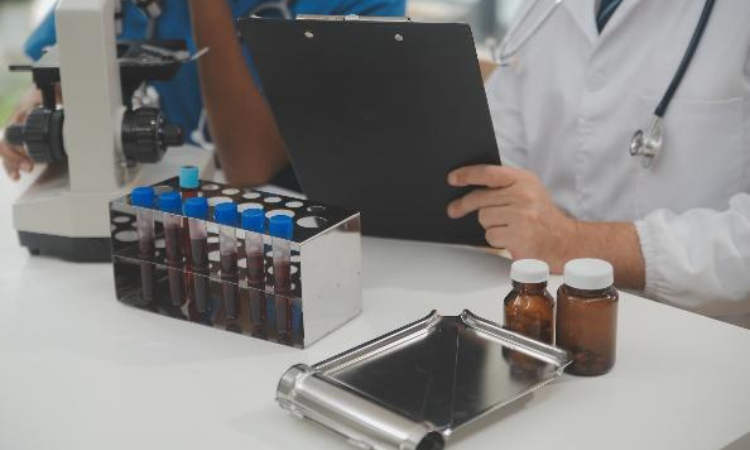Empowering Your Health Through Knowledge and Action…
Living with end-stage kidney disease (ESKD) often means adjusting to a new routine centered around dialysis—a life-saving treatment that filters waste, toxins, and excess fluid from your blood when your kidneys can no longer do the job. While dialysis is critical, it’s only one part of the equation. Equally important is self-care, and a big part of that is understanding your lab work.
Lab tests might seem like just another part of treatment, but they’re essential tools that guide your care team—and you—in making informed decisions about your health. When you understand what your labs mean, you become an active partner in your own treatment, which can lead to better outcomes and improved quality of life.

Why Lab Work Matters for Self-Care
Your dialysis team regularly checks your blood to monitor how well your treatment is working and to make sure you’re staying as healthy as possible. Here’s why these lab tests are so important for your self-care:
- Monitors Dialysis Effectiveness
Measures like Kt/V and URR assess how well dialysis is removing waste from your body. If results are too low, it may mean you need longer or more frequent sessions. - Tracks Waste Levels (Urea, Creatinine)
High levels can signal poor clearance, prompting adjustments in dialysis, diet, or medications. - Checks Electrolyte Balance (Potassium, Sodium, Calcium, Phosphorus)
Imbalances can cause dangerous heart rhythms, bone problems, or muscle weakness. Monitoring helps guide diet and medication choices. - Assesses Anemia Management (Hemoglobin, Iron, Ferritin)
Anemia is common in dialysis patients and can cause fatigue and weakness. Lab results help determine if you need medications like EPO or iron supplements. - Monitors Bone Health (PTH, Calcium, Phosphorus)
Parathyroid hormone (PTH) levels reflect bone health. High levels may mean you need treatment to prevent bone pain or fractures. - Supports Nutritional Health (Albumin, Weight, Prealbumin)
Protein levels like albumin can show if you’re getting enough nutrition—essential for healing, strength, and immunity. - Detects Inflammation and Infection (CRP, WBC Count)
Inflammation markers can signal infection or chronic inflammation, helping your care team act quickly. - Guides Medication Adjustments
Your lab values help your nephrologist fine-tune medications to avoid side effects and ensure effectiveness.
How You Can Use Lab Work for Better Self-Care
- Ask Questions: Don’t hesitate to ask your care team to explain your lab results in plain language.
- Track Your Results: Keep a log of your lab values over time so you can see patterns and progress.
- Adjust Your Diet: Use your labs to work with a renal dietitian to fine-tune your food choices.
- Stay Engaged: Attend all appointments and communicate changes in how you feel.
- Be Proactive: If something doesn’t feel right, speak up—your labs may provide the explanation.
Understanding your lab work is more than numbers—it’s a window into how your body is responding to dialysis and a guide to what it needs. The more you know, the more empowered you are to take charge of your health.
Knowledge is power, and in dialysis care, it’s also peace of mind.
Source
National Kidney Foundation: Understanding your lab values and other CKD health numbers https://www.kidney.org/kidney-topics/understanding-your-lab-values-and-other-ckd-he




